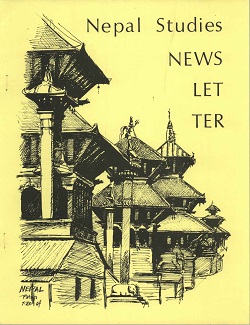Author Biography
Ian Gibson teaches Global Studies at Abilene Christian University. He holds a D.Phil. in Anthropology from the University of Oxford, and is the author of Suffering and Hope: Christianity and Ethics among the Newars of Bhaktapur (Ekta, 2017).
Abstract
In Nepal’s public discourse, Christianity is often described as a divisive force, perhaps a plot by foreign powers to undermine the cohesion of Nepali society. In this article, I present ethnographic material from Bhaktapur suggesting that, at least with respect to family life, the social effects of conversion may often differ from this stereotypical picture. In Bhaktapur, I argue, conversion is more frequently a consequence of pre-existing conflicts within families than a source of new ones. Furthermore, in some contexts, the social, ethical, and ritual practices of Bhaktapurian churches can bring reconciliation to troubled families. In other contexts, conversion can heighten intrafamilial tensions, in particular through the commitment it brings to exclusivist theology. I explore how converts negotiate the conversion process and the tensions that precipitate and result from it, describing how familial power dynamics influence such negotiations. To give the reader a fleshed-out sense of the lived experience of Christian and part-Christian families in Bhaktapur, I give thick descriptions of the conversions of one church minister and his family, and of a church house fellowship in which post-conversion family tensions are discussed. Connecting this ethnography with wider research on Bhaktapurian Christianity, I delineate the competing forces at work in converts’ family lives. In light of the rapid growth of Christianity in Nepal, and the heated and sometimes violent nature of political responses to this, ethnographic research is urgently needed to examine not just the causes but also the longterm effects of Christian conversion; this will help to clarify whether patterns found in Bhaktapur are replicated elsewhere in the country.
Acknowledgements
The author would like to thank David Gellner, Sondra Hausner, Joel Robbins, and Ramon Sarro for their comments on earlier iterations of this work. He would also like to thank the editors of HIMALAYA and the two anonymous reviewers for their valuable feedback. This article stems from a D.Phil. funded by the UK Economic and Social Research Council (Grant No.: ES/J500112/1), and a bursary from the University of Oxford’s School of Anthropology and Museum Ethnography.
Creative Commons License

This work is licensed under a Creative Commons Attribution-Noncommercial-No Derivative Works 4.0 License.
Recommended Citation
Gibson, Ian. 2019. Praying for Peace: Family Experiences of Christian Conversion in Bhaktapur. HIMALAYA 39(1).
Available at:
https://digitalcommons.macalester.edu/himalaya/vol39/iss1/9


